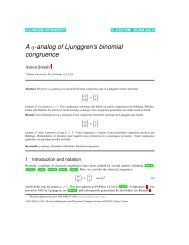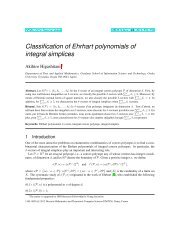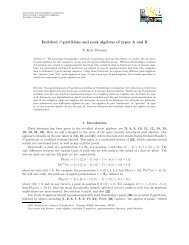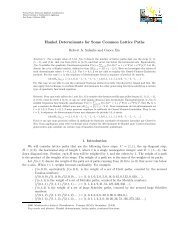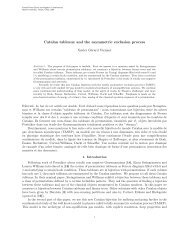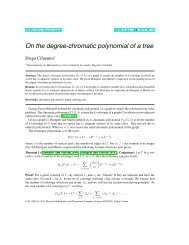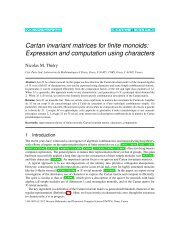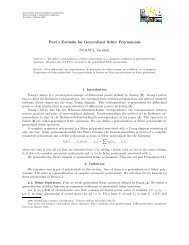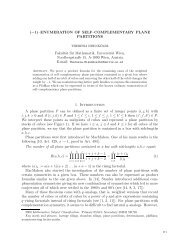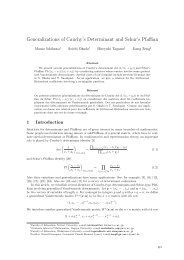Euler's partition theorem and the combinatorics of -sequences
Euler's partition theorem and the combinatorics of -sequences
Euler's partition theorem and the combinatorics of -sequences
You also want an ePaper? Increase the reach of your titles
YUMPU automatically turns print PDFs into web optimized ePapers that Google loves.
Ano<strong>the</strong>r q-analog <strong>of</strong> <strong>the</strong> l-nomial<br />
Let a n (q) = (1 − q an )/(1 − q). Then<br />
[ n<br />
k<br />
] (l)<br />
q<br />
= ∑ (µ,f )<br />
q shapeweight(µ) q fillweight(µ,f )<br />
where <strong>the</strong> sum is over all pairs (µ, f ) such µ is a <strong>partition</strong> in<br />
[k × (n − k)] <strong>and</strong> f is a filling f (i, j) <strong>of</strong> <strong>the</strong> cells <strong>of</strong> [k × (n − k)]<br />
with elements <strong>of</strong> {0, 1, . . . l − 1} so that (i) no row <strong>of</strong> µ or column<br />
<strong>of</strong> µ c contains (l − 1)(l − 2) ∗ (l − 1) <strong>and</strong> ... (a bit more)<br />
Indexing cells <strong>of</strong> k × (n − k) bottom to top, left to right:<br />
◮ cell (i, j) has a shape weight (a i − a i−1 )(a j − a j−1 )<br />
◮ shapeweight(µ) is sum <strong>of</strong> shape weights <strong>of</strong> cells in µ<br />
◮ cell (i, j) has a fill weight a i a j<br />
◮ fillweight(µ, f ) is ∑ i,j f (i, j)a ia j .<br />
(Now starting to get something related to lecture hall <strong>partition</strong>s.)



